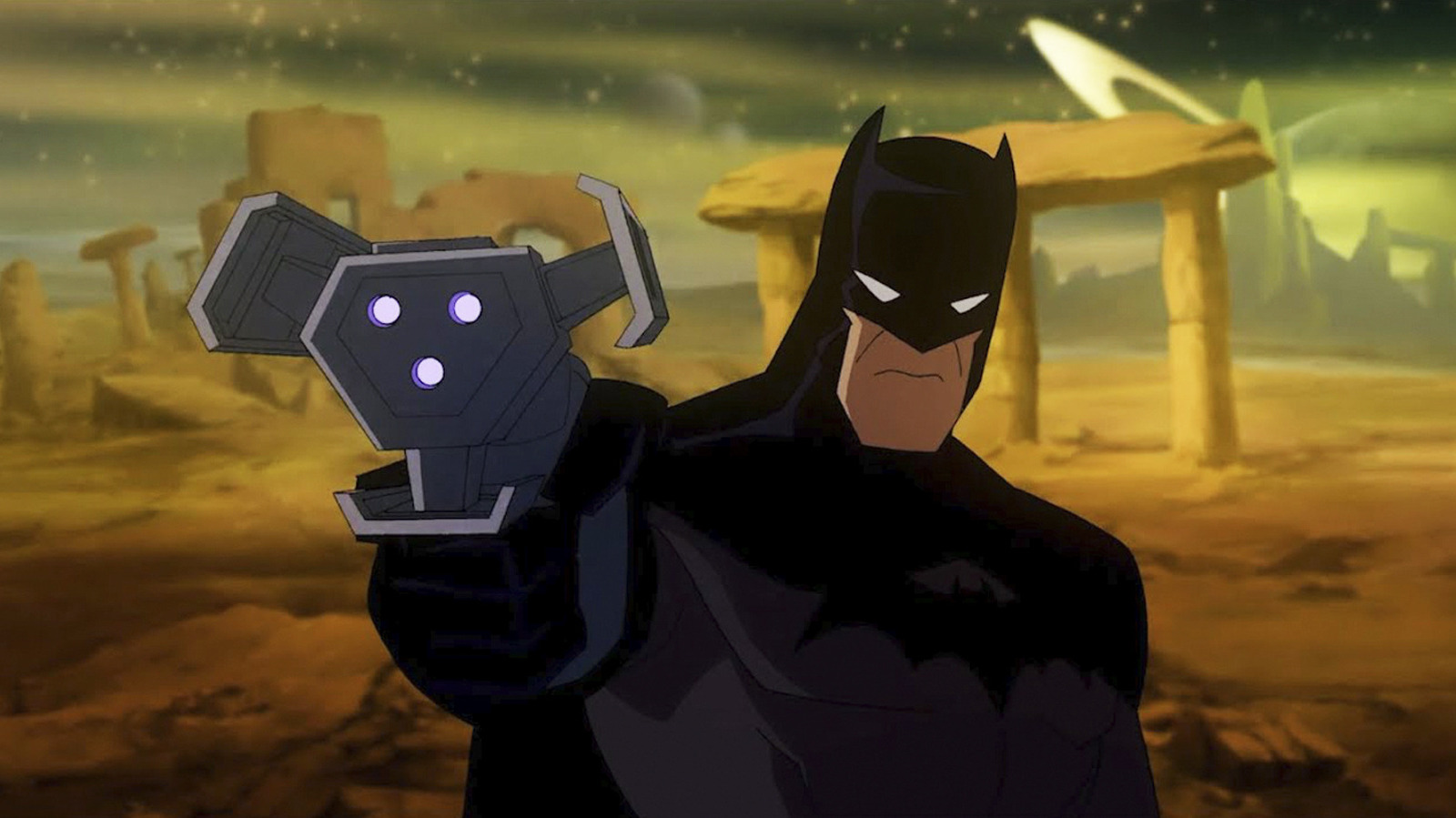
“Justice League: Crisis on Two Earths” takes place in a “mirror universe” where alternate versions of the Justice League — the Crime Syndicate — inflict a reign of unstoppable terror and larceny on the world. An alternate Lex Luthor (Chris Noth), his world’s only remaining superhero, travels to the Justice League’s Earth and asks for their help. I consider “Crisis on Two Earths” to be the best multiverse superhero movie thanks to interplay between Batman and his counterpart, Owlman (James Woods).
This Batman is way different from Clooney’s smiley one. “Crisis on Two Earths” was originally written to be part of the DC Animated Universe, set between “Justice League” and “Justice League Unlimited.” Dwayne McDuffie’s original DCAU-canon script has since been made publicly available — it only has surface-level differences to the final film, and much of the dialogue is the same.
William Baldwin is essentially playing the same iteration of Batman that was voiced by Kevin Conroy, and by this point, the character was a stern loner. McDuffie almost certainly wrote Batman’s (and maybe even Owlman’s) dialogue in “Crisis on Two Earths” for Conroy’s voice. So while Baldwin does an OK job, he stands in the shadow of the best Batman ever. Batman sits out most of the second act, but comes back into focus when Owlman reveals a plan to destroy reality, convinced the multiverse renders all other choices meaningless. He’s invented a bomb called the Quantum Eisengate device, or Q.E.D. — “quod erat demonstrandum.” That’s a Latin saying often used to put a pin at the end of an argument. Owlman’s Q.E.D. is the end of existence and his argument, the ultimate demonstration on life’s meaninglessness.
In fighting Owlman, Batman gets a taste of what it’s like to fight himself, but a version of himself without any moral scruples. Owlman overpowers Batman and sees right through him with the skill of a great detective:
“From what I gather, we’re very much alike. Everything about you tells the tale. Your attitude, your costume, your tactics. They all scream of outrage. Despair. Vengeance. What terrible wrong was done to set you on this path?”
But in the end, Batman wins, sending Owlman and his bomb to a lifeless world. He repays the favor by offering his own analysis of Owlman: “We both looked into the abyss, but when it looked back at us, you blinked.”
Compare this to the “Justice League” episode “A Better World,” where the League meets a version of themselves (the Justice Lords) who seized control of the world for the “greater good.” The two Batmen (both Conroy) wind up sparring and debating. In the end, the Lord Batman wins the argument with his response to League Batman’s claim that “You grabbed power!”:
“And with that power, we’ve made a world where no eight-year-old boy will ever lose his parents because of some punk with a gun!”
The line gets extra power because Conroy is the one saying it, the same way I’m sure Batman’s line about looking into the abyss would have if the movie had been made as intended.
